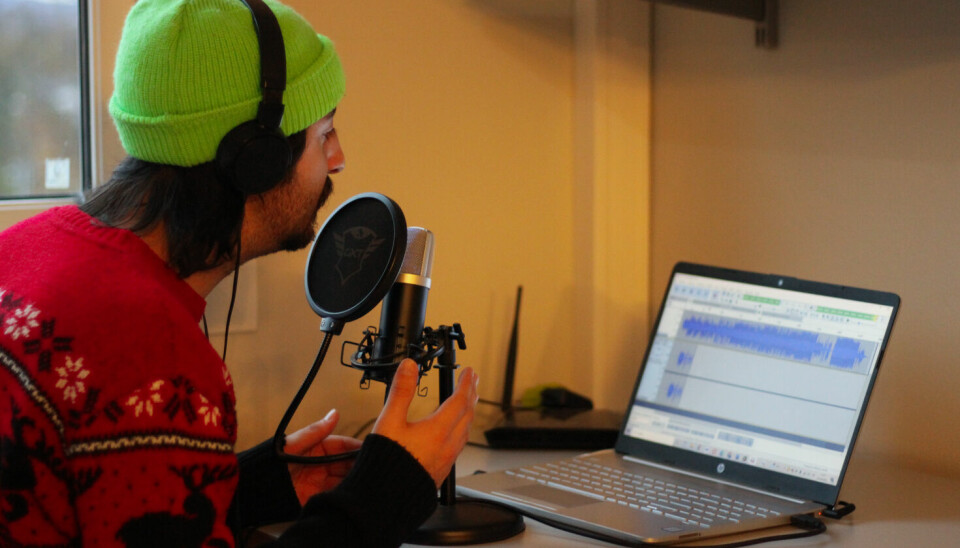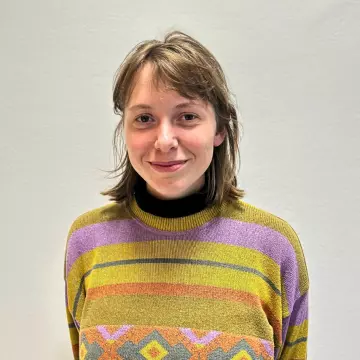#People
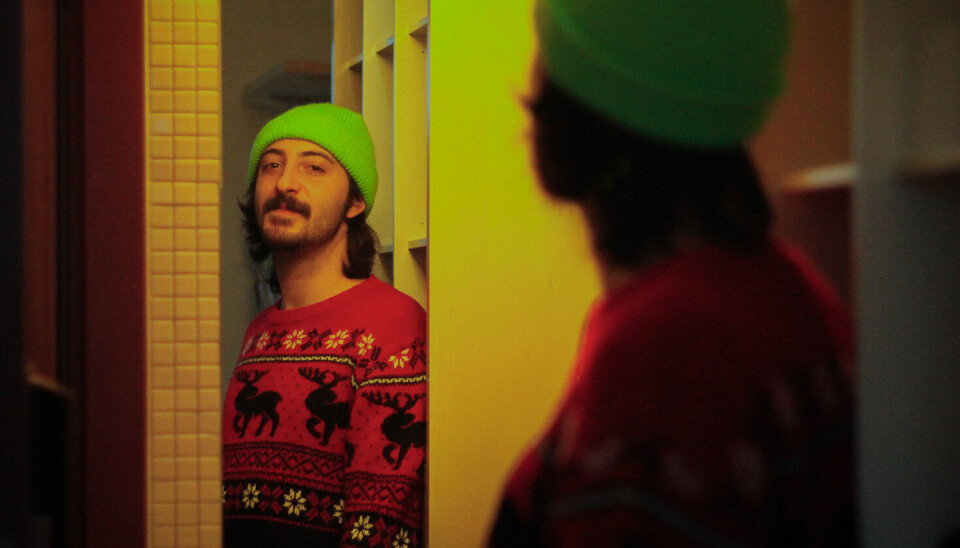
“Oslo Street”: Ruggero’s Song About His Erasmus Experience
International student in the spotlight
Ruggero Dell’Orfanello (24) produced an album last month and included a song about Oslo and the Erasmus experience. Gash Luciano, his stage name, arrived as an international student in Oslo this summer and instantly loved it. “‘Oslo Street’ is about having hope about everything falling into place,” he says.
On a chilly and windy Monday, Ruggero and I meet for a coffee at Espresso House next to Ullevål Stadion. He is waiting for me outside, wearing a sporty jacket and an eye-catching neon green hat, and smiles enthusiastically when I wave at him. Aside from keeping Ruggero from being cold, the hat is a part of his musician’s persona, a cool symbol to remember him by. He bought it four years ago in Italy; the vibrant green appealed very much to him.
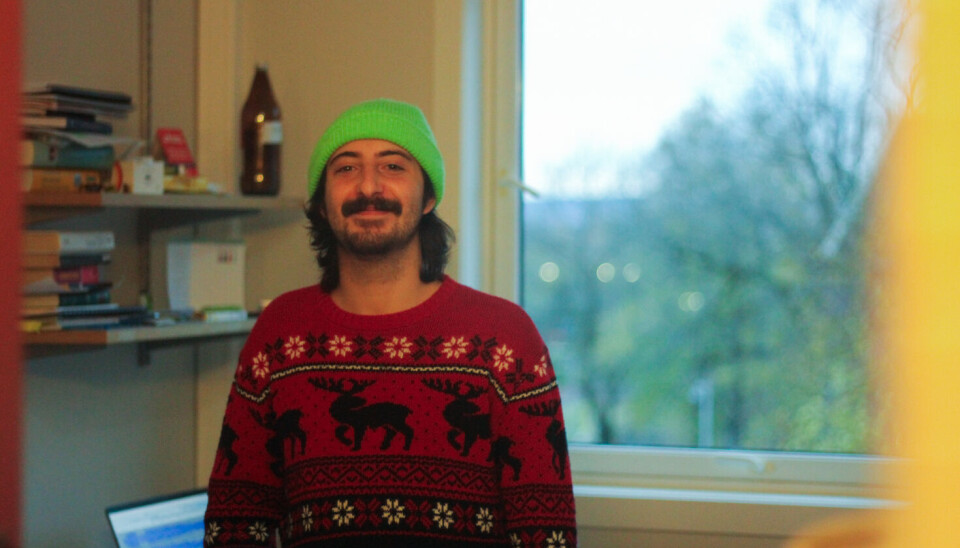
We quickly go inside, order a coffee and sit down at a table, facing each other. While he sips his latte macchiato, we chit chat about our lives as exchange students and – of course – the cold Norwegian weather. He waves his hands when talking and is as interested in my story as I am in his. He tells me he grew up in Lucca, a city in Italy, studied Languages and Literature in Pisa and Bologna, and did an Erasmus semester in Lisbon. “I do love being abroad, getting in touch with other cultures and exploring the music scene,” says Ruggero.
Now he is doing a Master's in Modern Comparative and Postcolonial Literatures. “I chose Norway, because I would like to start teaching Norwegian or Norwegian literature," he says. "I love the culture and the country.” When asked why Norway attracts the musician so much, he starts laughing: “I was two years old when I visited Norway with my parents. I remember being on a cruise in a fjord and looking outside of the window. There was this big rock from which a waterfall was pouring out. In front of this waterfall, there was a woman dancing with a red piece of cloth in her hand.” Rugerro doesn't know if it was a dream or not, but it came to his mind again when he was 18 years old. “This memory kind of pushed me into visiting Norway and learning Norwegian,” he confirms.

When Ruggero was 14, his grandparents gave him his first guitar, a brownish model the brand of which he struggles to remember. “They have always been supportive and they really believed I could make something out of music,” he says, taking a sip from his coffee and smiling proudly. “Every time I go visit my grandmother, she always asks me to keep on singing. She wants to keep hearing me and listening to what I have recorded.” Ruggero makes sure to remind himself that it’s not a given to have such an encouraging support from his family.
The music and party scene in Oslo is something he hasn’t experienced before. Dancing with his friends at a party while everybody gets lost in the music enlivens Ruggero. “All the people are partying and just happy to be there. It often makes me imagine it’s my music people are dancing to,” laughs Ruggero. Making music means for him that he’s able to say a lot of things he could not say otherwise, because it’s a taboo or he cannot find the right words to express his feelings and emotions. “Also I feel like I’m being taken more seriously and that I show my inner self with my music.” Ruggero’s eyes start lighting up while saying this. “I’m showing people a completely different world, my world.”
A couple of days later I meet Ruggero again in his student room in Sogn Studentby to take photos of him. He has six flatmates, with whom he has a good relationship. His room is small but cozy, with some stacks of books on shelves and his desk. Polaroid pictures of Ruggero and his friends are hanging on a string attached to a shelf on his wall. On top of the shelf lies a friendly looking white whale, with eyes that seem to follow you gently no matter where you go.
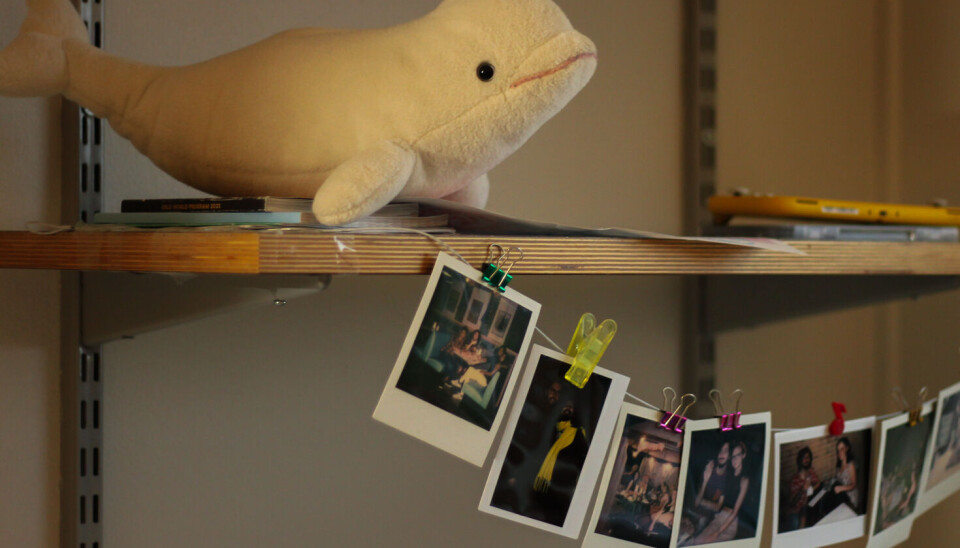
Making music in his room in Oslo is not the same as it is for Ruggero back home. Here, he doesn’t have his guitar, drums and piano, and the support of his friends. But he did bring his microphone and a midi, which is a digital rendering of instruments. “You know, my flatmates are fine with it. But there was this one time I was singing a very high pitched tone, it sounded pretty feminine. And my neighbor started knocking on the door, asking me to ask the girl to shut up,” Rugerro starts to laugh as he approaches the punchline. “I said: ‘Oh, yes, of course, I’ll tell her to!’”
The melody for “Oslo Street” he made back home, and it was inspired by his expectations of how his time here would be. He wrote the lyrics of the song and recorded in his student room already in Oslo. “If I only had one word to describe ‘Oslo Street,’ it would be hope. I was hoping to keep working on my music, hoping to keep on working on this musical part of me. I was scared and nervous before going to Oslo, and it turned out to be everything I’ve hoped for.” Rugerro begins to speak more passionately now, “This album was hard to put together, and now I’m looking at the whole picture and I feel I can throw myself out there. It’s starting to get serious, you know. This is my starting point as a musician.”
For other (future) international students who are also passionate about making music he has some advice: “During your Erasmus, you’ll become another person. You are not the same as you were before, and you will not be the same when you come back. Let the music you make change with you. Look around, talk with other students and musicians, and get inspired. You will notice that you grow as a person and as a musician.”
Listen to Rugerro’s album on Spotify.
